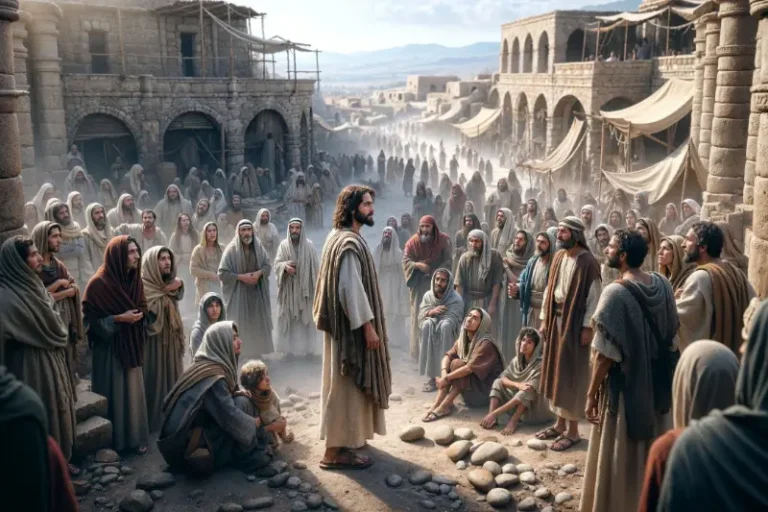Bitterness is spiritual disaster
“See to it that no one comes short of the grace of God; that no root of bitterness springing up causes trouble, and by it many be defiled” (Heb. 12:15 NAS).
Man is a spirit being, and bitterness does to our spirit what poison does to the body. The spirit is the source of man’s life that sustains his body and mind. The scripture teaches us that the spirit of man controls and determines our thoughts, actions, and words (Proverbs 4:23, Mark 7:21). Harboring bitterness, resentment, or unforgiveness is signing up for spiritual disaster.
Many of us think the commandment to forgive and to not keep bitterness is just one of God’s commandments to obey to please him. No! It is His commandment to save you from destruction! It is not for God but for you, because He knows that your spirit man will be ruined by harboring bitterness. Bitterness attracts bitterness, because Satan will organize a party for his demons in a bitter heart! Do not open yourself up for spiritual oppression. Heed the Word of God today: “Let all bitterness and wrath and anger and clamor and slander be put away from you, along with all malice. And be kind to one another, tender-hearted, forgiving each other, just as God in Christ also has forgiven you” (Eph. 4:31-32 NAS).
MEDITATE
Why will bitterness cause trouble in your life, as stated in the main verse above? Why is it difficult for us to let go or forgive?
APPLY THE WORD
The instruction from the Word above is simple and clear—put away bitterness. One of our greatest temptations is to give ourselves a reason to keep bitterness within. Do not accept this lie from Satan. Look at Eph. 4:31-32 above again, and just do it!
PRAY
Ask the Lord for the grace to forgive and cleanse your heart of bitterness today.
Recommended Read: Root of bitterness
Must Read!: What is a Daily Devotional?
Sanctify yourselves therefore, and be ye holy: for I am the Lord your God. And ye shall keep my statutes, and do them: I am the Lord which sanctify you. (Leviticus 20:7–8, KJV)

As the Great I AM that I AM, God revealed Himself as the Lord who sanctifies His people in the Old Covenant—Jehovah Mekaddishkem. But this was only a shadow of something greater that was coming in the New Testament.
Jehovah Mekaddishkem is the English transliteration of the Hebrew words for “I am the Lord which sanctify you” ( “mekaddish” = sanctify, “kem” = you). Divine names and titles in the Old Testament often reveal an aspect of God in relation to His people.
There are three keywords that underlie the meaning of sanctification: “wash,” “consecrate,” and “separate.” Sanctification essentially means to make something holy. Sinlessness is a core aspect of holiness, but there is more to holiness than sinlessness. It is the very nature of God. However, when used in reference to us humans, it means to be cleaned from sin, set apart for God, and consecrated to Him.
In the passage above, God tells the people first to sanctify themselves and then reveals He is the One who sanctifies them. Thus, He gives us the two sides of sanctification—the God side and the human side. There’s something God does and something His people do for their sanctification.
This truth was only a shadow in the Old Testament. It is in Christ that we see God fully revealed as Jehovah Mekaddishkem to His people through the sanctifying work on the cross. In speaking to the Corinthians, Paul revealed,
“And such were some of you: but ye are washed, but ye are sanctified, but ye are justified in the name of the Lord Jesus, and by the Spirit of our God.” (1 Corinthians 6:11, KJV)
This is Jehovah Mekaddishkem fulfilled in Christ: We were washed and sanctified. Note that these are in past tense, describing something God has already done. The day you received Christ, you received the bath of your life, a heavenly bath by the Spirit of God that removed every stain of sin through the precious blood of Christ. And as you continue to live on earth, the Spirit continues to sanctify you daily.
Following the sanctifying work He has already done in us, He commands us,
“For this is the will of God, even your sanctification, that ye should abstain from fornication:” (1 Thessalonians 4:3, KJV)
Now that you are clean, washed, and sanctified, He tells us to put that sanctification to work outwardly. Paul explicit states it is what God wants—His will. He gives us a very specific example of sanctification here: abstain from sexual immorality. Few things defile us, like sexual impurity. But sanctification certainly includes more than abstaining from fornication or adultery. As above, it includes living a consecrated and separated life to God daily in the way we talk, act, think, feel, and handle our bodies.
He is Jehovah Mekaddishkem, the God who has Sanctified you in Christ and continues to sanctify you every day.
Meditate
Is our sanctification completed, ongoing, or both?
Apply the Word
This is the crucial part of this devotional. Until you receive the truth that God has already sanctified you by His Spirit, you will not be empowered to be sanctified practically. Put God’s sanctification power to work in your life daily by faith in the finished work of Christ.
Pray
Ask the Lord to help you in your daily walk of sanctification.
Free Mini E-book: From Spiritual Dryness to Flourishing






